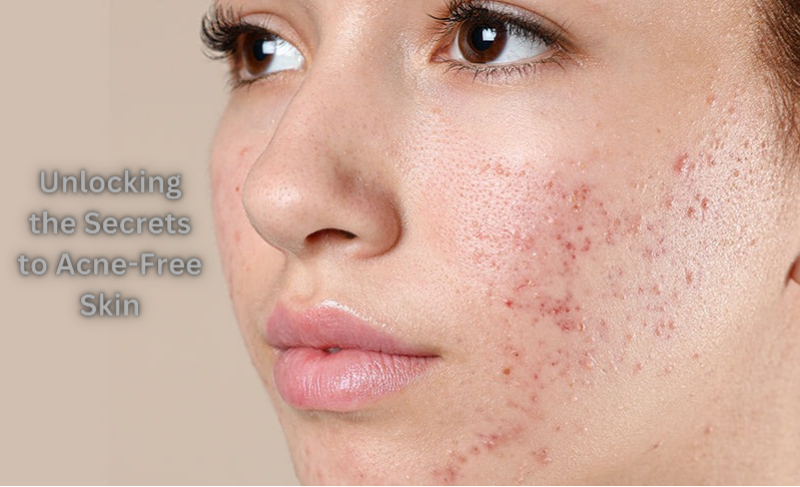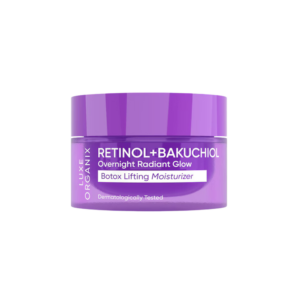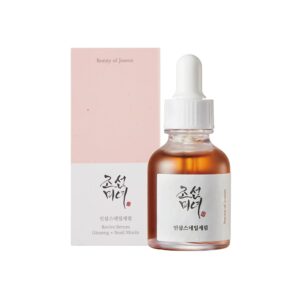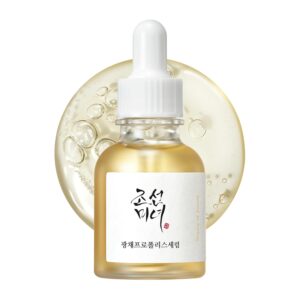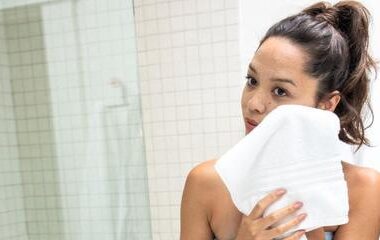Acne – it’s a word that strikes fear into the hearts of many skincare enthusiasts. But fear not, because in this comprehensive guide, we’re going to delve deep into the world of acne, providing you with valuable insights, effective remedies, and expert advice to help you achieve clear and radiant skin. Say goodbye to breakouts and hello to confidence!
Table of Contents
Understanding Acne
Before we dive into solutions, let’s first understand what acne really is. Acne is a common skin condition characterized by the presence of pimples, blackheads, and whiteheads. It occurs when hair follicles become clogged with oil and dead skin cells, leading to the formation of blemishes. Acne can be caused by various factors, including hormonal changes, genetics, and lifestyle choices.
Understanding the types of acne is crucial for effective treatment. Common types include:
- Whiteheads: Closed clogged pores with a white or flesh-colored bump.
- Blackheads: Open clogged pores with a black or dark-colored bump.
- Papules: Small, red, and tender bumps.
- Pustules: Red bumps filled with pus.
- Cysts: Large, painful, and pus-filled lumps beneath the skin’s surface.
The Role of Diet and Lifestyle
Did you know that your diet and daily habits can significantly impact your skin? Your skin is a reflection of your overall health, and what you eat and how you live can have a profound effect on its condition. In this chapter, we’ll reveal the connection between nutrition, stress, and acne, providing tips on how to make small but effective changes that can lead to big improvements in your complexion.
- Diet: Incorporate more fruits, vegetables, and foods rich in antioxidants. Cut back on sugar, dairy, and processed foods, which can exacerbate acne.
- Lifestyle: Manage stress through practices like meditation and exercise. Get enough sleep to allow your skin to repair itself. Avoid smoking and limit alcohol consumption.
Skincare Routine for Acne-Prone Skin
Building a tailored skincare routine is key to combating acne. A basic skincare routine for acne-prone skin includes:
- Cleansing: Use a gentle, sulfate-free cleanser twice daily to remove dirt and excess oil without over-drying.
- Treatment: Apply a topical treatment containing ingredients like benzoyl peroxide, salicylic acid, hydroquinone, tretinoin or retinoids to target acne-causing bacteria and unclog pores.
- Moisturizing: Choose an oil-free, non-comedogenic moisturizer to keep your skin hydrated without clogging pores.
- Sunscreen: Protect your skin from UV damage with a broad-spectrum sunscreen, especially if you’re using acne treatments that can increase sensitivity to the sun.
- Exfoliation: Use a mild exfoliant (physical or chemical) once or twice a week to remove dead skin cells and prevent clogged pores.
In this chapter, we’ll provide product recommendations and tips for creating a skincare routine that suits your skin type and addresses your acne concerns.
-
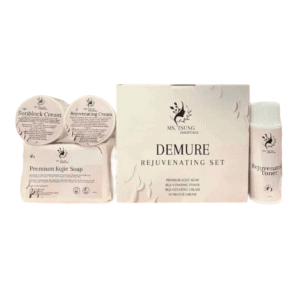 Ms.Tsung Demure Rejuvenating SetKD6.000
Ms.Tsung Demure Rejuvenating SetKD6.000 -
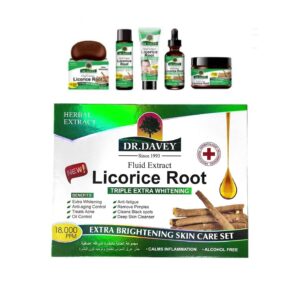 Dr Davey Licorice Root Extra Brightening Skin Care SetKD11.000
Dr Davey Licorice Root Extra Brightening Skin Care SetKD11.000 -
Product on sale
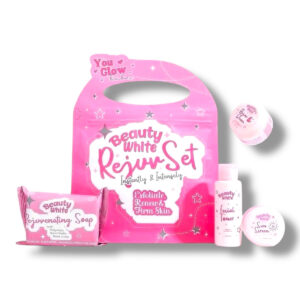 You Glow Babe Beauty White REJUV SETOriginal price was: KD8.000.KD6.000Current price is: KD6.000.
You Glow Babe Beauty White REJUV SETOriginal price was: KD8.000.KD6.000Current price is: KD6.000. -
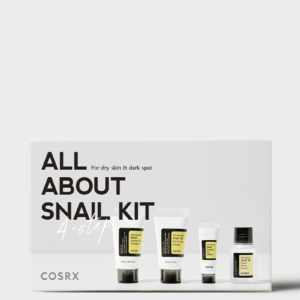 ALL ABOUT SNAIL KIT 4-stepKD12.000
ALL ABOUT SNAIL KIT 4-stepKD12.000 -
Product on sale
 Hami-San Best Trio SetOriginal price was: KD8.000.KD7.000Current price is: KD7.000.
Hami-San Best Trio SetOriginal price was: KD8.000.KD7.000Current price is: KD7.000. -
Product on sale
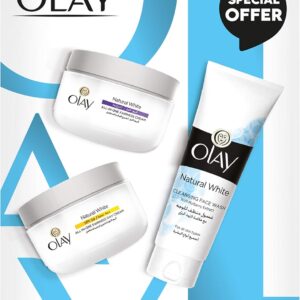 Olay Natural White Beauty Box: Face Wash 100g + Day Cream SPF24 50g + Night Cream 50gOriginal price was: KD8.000.KD4.000Current price is: KD4.000.
Olay Natural White Beauty Box: Face Wash 100g + Day Cream SPF24 50g + Night Cream 50gOriginal price was: KD8.000.KD4.000Current price is: KD4.000. -
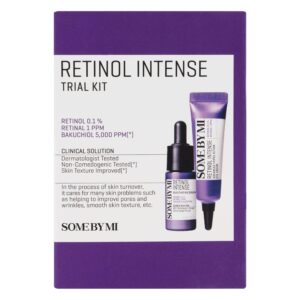 Some By Mi Retinol Intense Trial KitKD12.000
Some By Mi Retinol Intense Trial KitKD12.000 -
Product on sale
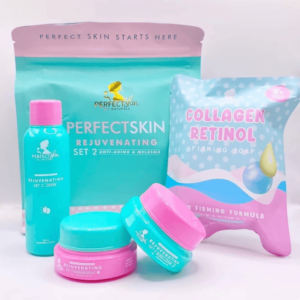 Perfect Skin Rejuvenating Set 2 (Anti-aging, Melasma and Maintenance)Original price was: KD8.990.KD7.000Current price is: KD7.000.
Perfect Skin Rejuvenating Set 2 (Anti-aging, Melasma and Maintenance)Original price was: KD8.990.KD7.000Current price is: KD7.000. -
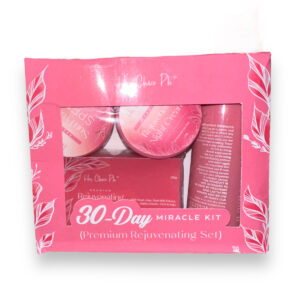 HER CHOICE PH – 30 Day Miracle Kit – Premium Rejuvenating SetKD7.000
HER CHOICE PH – 30 Day Miracle Kit – Premium Rejuvenating SetKD7.000
Natural Remedies and DIY Treatments
For those who prefer a more natural approach, we’ll explore homemade remedies and holistic techniques that can help soothe and heal acne-prone skin. Here are some effective DIY treatments to consider:
- Honey and Cinnamon Mask: Mix honey and cinnamon to create a mask that has antibacterial and anti-inflammatory properties.
- Tea Tree Oil: Dilute tea tree oil with a carrier oil and apply it to blemishes. Tea tree oil has natural antibacterial properties.
- Aloe Vera: Apply pure aloe vera gel to soothe irritated skin and reduce inflammation.
- Green Tea: Brew green tea and use it as a toner. Green tea contains antioxidants that can calm acne-prone skin.
In this chapter, we’ll provide detailed instructions on how to use these natural remedies and offer additional tips for incorporating them into your skincare routine.
Preventing Acne Scarring
Nobody wants to deal with the lasting effects of acne scars. Learn about preventive measures and treatments that can minimize scarring and help your skin recover faster. Some effective methods include:
- Microneedling: A procedure that stimulates collagen production to improve skin texture.
- Chemical Peels: Chemical exfoliation that can reduce the appearance of scars.
- Topical Scar Gels: Over-the-counter scar gels that contain silicone to hydrate and smooth scar tissue.
Lifestyle Habits for Healthy Skin
Beyond skincare products, we’ll explore lifestyle habits that can support your journey to clear skin. From managing stress to getting adequate sleep, small changes can make a big difference. Here are some lifestyle tips for healthy skin:
- Stress Management: Practice mindfulness, meditation, or yoga to reduce stress levels.
- Adequate Sleep: Aim for 7-9 hours of quality sleep each night to allow your skin to repair and regenerate.
- Hydration: Drink plenty of water to keep your skin hydrated and healthy.
- Exercise: Regular physical activity can improve circulation and promote healthy skin.
Product Reviews and Recommendations
To make your journey easier, we’ve compiled a list of tried-and-tested products for acne-prone skin. These recommendations are carefully selected based on their effectiveness, safety, and affordability. Here are some products we recommend:
Cleanser
-
Product on sale
 CeraVe Psoriasis Cleanser – 237mlOriginal price was: KD7.000.KD5.000Current price is: KD5.000.
CeraVe Psoriasis Cleanser – 237mlOriginal price was: KD7.000.KD5.000Current price is: KD5.000. -
Product on sale
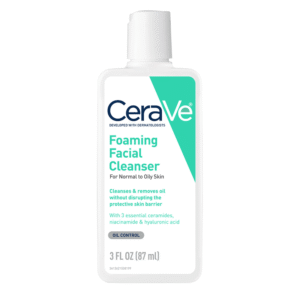 CeraVe Foaming Facial Cleanser – 87mlOriginal price was: KD6.000.KD3.500Current price is: KD3.500.
CeraVe Foaming Facial Cleanser – 87mlOriginal price was: KD6.000.KD3.500Current price is: KD3.500. -
Product on sale
 CeraVe Acne Control Cleanser – 237mlOriginal price was: KD9.000.KD8.000Current price is: KD8.000.
CeraVe Acne Control Cleanser – 237mlOriginal price was: KD9.000.KD8.000Current price is: KD8.000. -
Product on sale
 Cetaphil Gentle Skin Cleanser Normal To Dry Skin – 236mlOriginal price was: KD7.000.KD5.500Current price is: KD5.500.
Cetaphil Gentle Skin Cleanser Normal To Dry Skin – 236mlOriginal price was: KD7.000.KD5.500Current price is: KD5.500. -
Product on sale
 Cetaphil Oily Skin Cleanser – 236mlOriginal price was: KD7.000.KD5.000Current price is: KD5.000.
Cetaphil Oily Skin Cleanser – 236mlOriginal price was: KD7.000.KD5.000Current price is: KD5.000. -
Product on sale
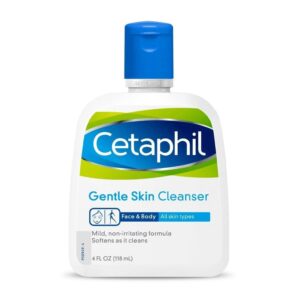 Cetaphil Gentle Skin Cleanser – 118mlOriginal price was: KD6.000.KD4.500Current price is: KD4.500.
Cetaphil Gentle Skin Cleanser – 118mlOriginal price was: KD6.000.KD4.500Current price is: KD4.500. -
Product on sale
 Bye Bye Blackhead 30 Days Miracle Green Tea Tox Bubble Cleanser – 120gOriginal price was: KD9.000.KD9.000Current price is: KD9.000.
Bye Bye Blackhead 30 Days Miracle Green Tea Tox Bubble Cleanser – 120gOriginal price was: KD9.000.KD9.000Current price is: KD9.000. -
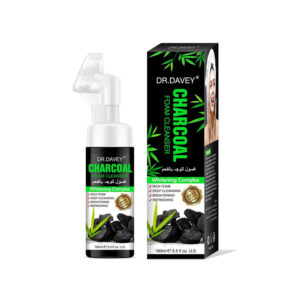 Dr.Davey Charcoal foam cleanser face cleanser – 160mlKD2.490
Dr.Davey Charcoal foam cleanser face cleanser – 160mlKD2.490 -
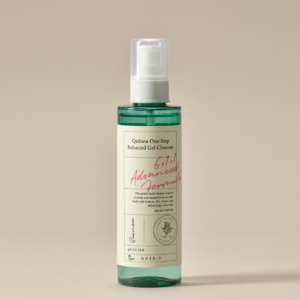 Quinoa One Step Balanced Gel Cleanser 180mLKD8.000
Quinoa One Step Balanced Gel Cleanser 180mLKD8.000
Treatment
-
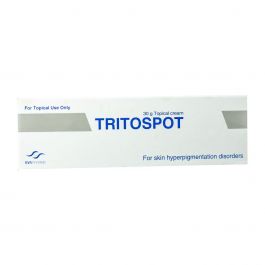 Tritospot Cream – 30 gmKD4.000
Tritospot Cream – 30 gmKD4.000 -
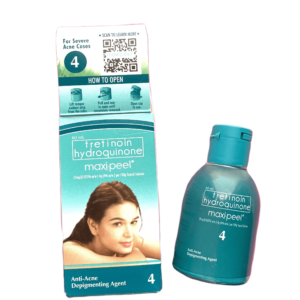 0.025% Tretinoin 4% Hydroquinone Maxi-Peel Solution No.4 60mLKD2.000
0.025% Tretinoin 4% Hydroquinone Maxi-Peel Solution No.4 60mLKD2.000 -
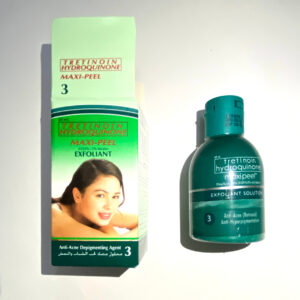 Maxi-Peel Exfoliant No.3 – 0.025%/2% Tretinoin, HydroquinoneKD2.000
Maxi-Peel Exfoliant No.3 – 0.025%/2% Tretinoin, HydroquinoneKD2.000 -
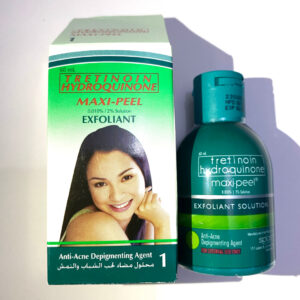 Maxi-Peel Exfoliant No.1 – 0.010%/2% Tretinoin, HydroquinoneKD2.000
Maxi-Peel Exfoliant No.1 – 0.010%/2% Tretinoin, HydroquinoneKD2.000 -
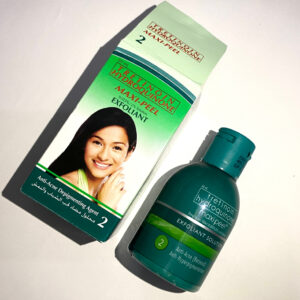 Maxi-Peel Exfoliant No.2 – 0.025%/2% Tretinoin, HydroquinoneKD2.000
Maxi-Peel Exfoliant No.2 – 0.025%/2% Tretinoin, HydroquinoneKD2.000 -
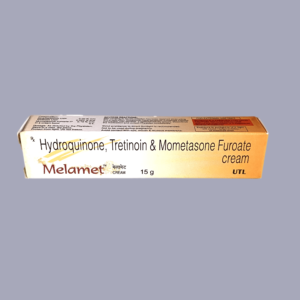 Melamet Cream 15g – Hydroquinone + Tretinoin + Mometasone FuroateKD3.000
Melamet Cream 15g – Hydroquinone + Tretinoin + Mometasone FuroateKD3.000 -
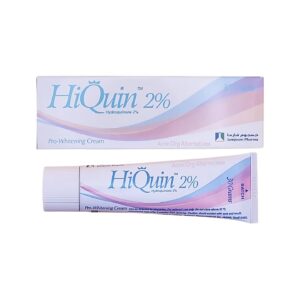 HiQuin Cream 30g – 2% Hydroquinone Solution for HyperpigmentationKD2.750
HiQuin Cream 30g – 2% Hydroquinone Solution for HyperpigmentationKD2.750 -
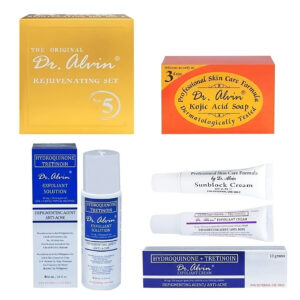 Dr. Alvin Rejuvenating Set No. 5 (Advance) – Hydroquinone + TretinoinKD7.000
Dr. Alvin Rejuvenating Set No. 5 (Advance) – Hydroquinone + TretinoinKD7.000 -
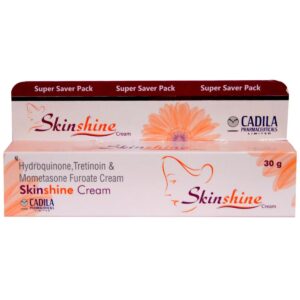 SkinShine Cream – Hydroquinone Tretinoin Mometasone Furoate 30gKD4.000
SkinShine Cream – Hydroquinone Tretinoin Mometasone Furoate 30gKD4.000
Moisturizer
Sunscreen (You will find items that have sunscreen in a set with other items)
-
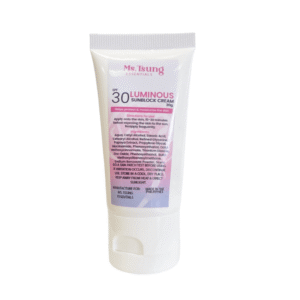 Ms. Tsung Essentials Luminous Sunblock SPF 30 – 30gKD3.990
Ms. Tsung Essentials Luminous Sunblock SPF 30 – 30gKD3.990 -
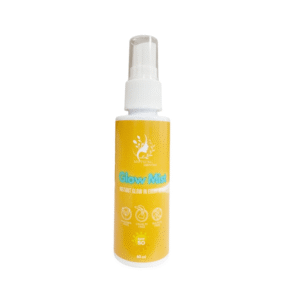 Ms. Tsung Essentials Glow Mist Sunscreen Spray SPF50 – 60mlKD4.490
Ms. Tsung Essentials Glow Mist Sunscreen Spray SPF50 – 60mlKD4.490 -
 BMRS Sunscreen With Niacinamide SPF 50 PA+++ – 30gKD6.990
BMRS Sunscreen With Niacinamide SPF 50 PA+++ – 30gKD6.990 -
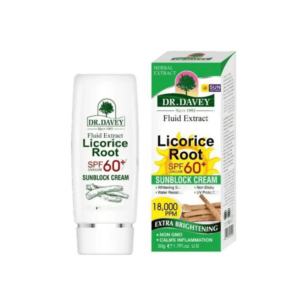 Dr. Davey Sunblock Cream SPF 60+ With Licorice Extract – 50gKD2.890
Dr. Davey Sunblock Cream SPF 60+ With Licorice Extract – 50gKD2.890 -
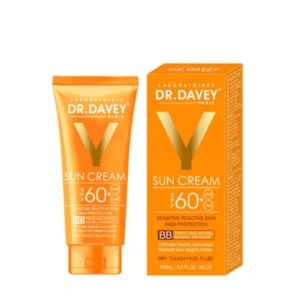 Dr. Davey Sunscreen SPF60+ – 100mlKD2.590
Dr. Davey Sunscreen SPF60+ – 100mlKD2.590 -
 Dr. Davey Sunblock Cream SPF 90 With Licorice Extract – 100gKD2.590
Dr. Davey Sunblock Cream SPF 90 With Licorice Extract – 100gKD2.590 -
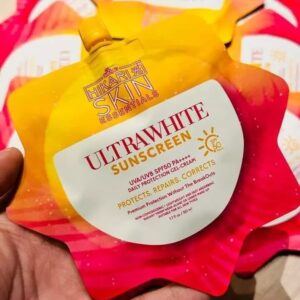 Hikari Skin Sunscreen SPF50 50mLKD3.500
Hikari Skin Sunscreen SPF50 50mLKD3.500 -
Product on sale
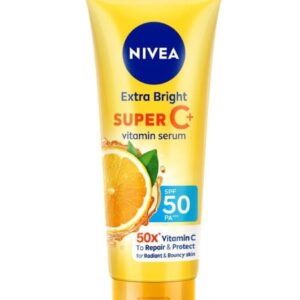 Nivea Extra Bright Super C+ Vitamin Body Serum SPF50 PA+++ 320 mlOriginal price was: KD5.000.KD4.000Current price is: KD4.000.
Nivea Extra Bright Super C+ Vitamin Body Serum SPF50 PA+++ 320 mlOriginal price was: KD5.000.KD4.000Current price is: KD4.000. -
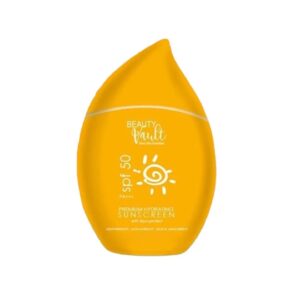 Beauty Vault Premium Hydrating Sunscreen SPF50 – 50gKD4.500
Beauty Vault Premium Hydrating Sunscreen SPF50 – 50gKD4.500
Frequently Asked Questions
We address common queries and concerns related to acne. From “Can I pop a pimple?” to “Is makeup safe for acne-prone skin?”, we’ve got answers to your burning questions.
It’s best to avoid popping pimples, as it can lead to infection and scarring. If you must, use a sterilized needle and follow proper extraction techniques.
The time it takes to see results from acne treatments can vary widely depending on the treatment used and the individual’s skin. Some topical treatments may show improvement within a few weeks, while others, like oral medications or professional treatments, may take several months. Consistency with your chosen treatment is key for optimal results.
While the relationship between diet and acne is complex and varies from person to person, some individuals may find that certain foods can trigger or worsen their acne. Common culprits include high-glycemic foods (sugar and processed carbs), dairy products, and foods high in saturated fats. It’s advisable to keep a food diary to identify potential triggers for your specific case.
Yes, stress can contribute to acne breakouts. Stress triggers the release of hormones like cortisol, which can increase oil production and inflammation in the skin, potentially leading to acne flare-ups. Managing stress through relaxation techniques, exercise, and adequate sleep can help reduce its impact on your skin.
Treating acne scars depends on their type and severity. Options include laser therapy, chemical peels, microdermabrasion, and microneedling, which can improve skin texture. Topical treatments with ingredients like retinoids and vitamin C may also help. For deep scars, consult a dermatologist for personalized recommendations.
Using multiple acne products simultaneously can be effective, but it should be done cautiously to avoid over-drying or irritating the skin. Start with a gentle cleanser, an acne treatment (e.g., benzoyl peroxide or salicylic acid), and a moisturizer. Introduce products gradually and monitor your skin’s response. If irritation occurs, scale back or consult a dermatologist for guidance.
Yes, hormonal fluctuations, such as those that occur during puberty, menstruation, pregnancy, and menopause, can contribute to adult acne. Hormonal acne is often characterized by deep, painful cysts along the jawline and chin. In such cases, hormonal therapies, birth control pills, or anti-androgen medications may be recommended by a healthcare professional.
You don’t have to avoid makeup entirely if you have acne-prone skin. However, it’s essential to choose makeup products labeled as “non-comedogenic” or “oil-free.” Remove makeup thoroughly before bedtime to prevent clogged pores. Consider using mineral makeup, as it is less likely to aggravate acne.
Genetics can play a significant role in your predisposition to acne. If your parents or siblings had acne, you may be more prone to it as well. While you can’t change your genetics, you can manage acne effectively through proper skincare and lifestyle choices.
Yes, using harsh cleansers or scrubbing the skin vigorously can exacerbate acne by stripping away the skin’s natural oils and causing irritation. It’s best to use a gentle, sulfate-free cleanser and be gentle when cleansing or exfoliating. Over-cleansing can disrupt the skin’s barrier and worsen breakouts.
Look for non-comedogenic makeup products designed for acne-prone skin. Always remove makeup before bed to prevent clogged pores.

